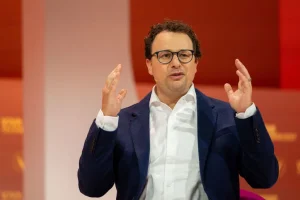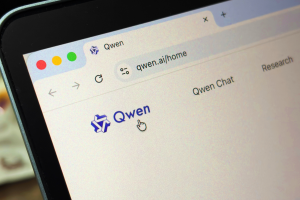Helsing Boosts Baltic Defense Amid Russian Tensions

Defense AI startup Helsing recently raised $487 million in a Series C funding round led by General Catalyst. This comes at a pivotal moment as NATO addresses the ongoing Russian invasion of Ukraine. Meanwhile, the substantial investment will allow Helsing to expand its foothold in European countries bordering Russia.
Helsing has already established a new entity in Estonia and plans to allocate €70 million over the next three years for Baltic defense projects. This strategic move aligns with Helsing’s mission to improve AI capabilities in defense systems, such as drones and jet fighters, enhancing battlefield decision-making.
Helsing’s Growing Presence in Europe
Defense AI startup Helsing has raised a substantial €450 million ($487 million) in a Series C funding round led by General Catalyst. This hefty investment comes at a crucial time as NATO discusses the ongoing Russian invasion of Ukraine. The new funding will help Helsing establish a crucial foothold in European countries bordering Russia.
Helsing has already made its mark in Estonia by creating a new entity and allocating €70 million over the next three years for Baltic defense projects. The expansion is in line with Helsing’s objective of strengthening AI capabilities in defense systems, such as drones and jet fighters, to improve battlefield decisions.
Helsing’s co-chief executive officer, Gundbert Scherf, highlighted in an interview how technology has been pivotal for Ukraine’s defense. Scherf remarked, “Ukraine has used technology for its defense against the full-scale Russian invasion, and I think us being able to help there and deploy our technology and execute the mission we had set out three and a half years ago, to use AI to protect our democracies, has been a big driver for us.”
Estonia as a Strategic Starting Point
Estonia’s commitment to technology and democracy made it a natural starting point for Helsing’s expansion. Gundbert Scherf emphasized the importance of this move into Estonia as part of their broader mission to protect European democracies. He stated, “We’re a company founded on European values and defending European interests and democracies, and right that now is happening in Ukraine.”
Estonia’s prime minister, Kaja Kallas, welcomed Helsing’s entrance, stressing the need for concrete actions over words. She expressed strong support for the initiative, pointing out that “we need actions, not just words.” This expansion aligns with the increasing defense budgets across Europe aimed at countering the Russian threat.
Co-CEO Torsten Reil highlighted the urgency of creating a significant capability gap to effectively deter, and if necessary, defend Europe and NATO’s eastern flank. He noted that “Russia has increased its defense budget to 7% of GDP, to a level where it’s pretty clear that the goal is probably not just Ukraine, but wider.”
Helsing’s Technological Advancements
Helsing’s AI technology focuses on processing information from various defense systems to enhance weapons capabilities and improve decision-making processes on the battlefield. One of their notable projects is Project Centaur, which uses reinforcement learning to develop AI for air combat. However, the details about their compute sources remain confidential for security reasons.
The company has partnered with defense heavyweights like Airbus SE and Germany’s defense ministries. Some of their significant projects include the German Eurofighter Electronic Warfare upgrade and the AI infrastructure for the Future Combat Air System (FCAS). More classified contracts also span across maritime and land domains.
Helsing continues to invest heavily in AI training agents to eventually achieve high capabilities in air combat. Despite some compute capabilities, Helsing relies on third-party services for additional support. This investment in technology reflects a broader trend among Western investors who are increasingly focusing on defense tech startups amid growing concerns over global security threats.
Investment and Financial Momentum
The Series C funding round not only strengthens Helsing’s financial position but also underscores the critical role such companies play in today’s geopolitical climate. The latest funding round places Helsing’s total raised amount at €769 million, with investors like Prima Materia, Accel, Lightspeed Venture Partners, and others joining in.
Silicon Valley investors have significantly increased their contributions to defense tech startups, with nearly $35 billion invested in 2023 alone. Helsing’s funding comes as Western nations continue to boost their defense budgets, presenting lucrative opportunities for startups in this sector.
According to a source, Helsing’s valuation is now approximately €4.95 billion ($5.4 billion), though the company has not publicly confirmed this figure. General Catalyst’s managing director, Jeannette zu Fürstenberg, highlighted Helsing’s potential to become a global leader, asserting that “the role of companies like Helsing has never been more critical.”
Challenges and Future Prospects
Despite its rapid growth and technological advancements, Helsing faces several challenges. The European defense market continues to lag behind the U.S. in terms of spending, making it challenging for companies to scale.
Few European defense startups have reached the scale of Helsing, indicative of the slower pace of growth and investment in this region compared to the U.S. However, Helsing’s strategic partnerships and substantial funding put it in a strong position to overcome these hurdles.
Looking ahead, Helsing aims to leverage its substantial funding and technological prowess to secure more contracts and expand its influence across Europe. The rising defense budgets and growing interest in defense tech startups present significant opportunities for Helsing to cement its position as a leader in the industry.
In conclusion, Helsing’s impressive $487 million Series C funding marks a significant step in fortifying European defense capabilities against mounting Russian threats. The startup’s commitment to technological advancements, strategic expansions, and robust partnerships underscores its pivotal role in modern defense. As Europe’s defense landscape evolves, Helsing’s initiatives in Estonia and beyond highlight the growing importance of AI in ensuring national security. This substantial financial backing signals a promising future for Helsing as it continues to safeguard democracies and reinforce NATO’s eastern borders.
With support from influential investors and increasing defense budgets, Helsing is well-positioned to advance its mission. The evolving geopolitical climate and rising defense spending present ample opportunities for Helsing to lead in the defense tech sector. As the company leverages its funding for innovative AI projects, its impact on European security will likely expand, reinforcing Helsing’s standing as a critical player in the industry. The future looks promising with Helsing at the forefront.





